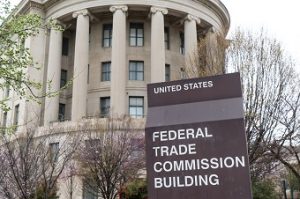
The U.S. Federal Trade Commission (FTC) has announced that Vivint has agreed to pay a $20 million settlement over allegations that the company misused credit reports to help unqualified customers obtain financing for their products and services. Vivint Smart Home, Inc. is a public smart home company in the United States and Canada.
Under the terms of the settlement, $15 million will be levied as a civil penalty against the company while the remaining $5 million will be used to compensate injured consumers.
According to a complaint filed by the FTC, the conduct of Vivint employees in obtaining these credit reports was a violation of the Fair Credit Reporting Act (FCRA). Furthermore, the FTC alleged that Vivint violated the agency’s Red Flags Rule by failing to implement an identify theft prevention program, which is required of certain companies that regularly use or obtain credit reports. The $20 million settlement is the largest recorded to date for an FCRA case.
Specifically, the FTC claims that some Vivint sales reps, many of which still work on a door-to-door, commission-only basis, used a process known as “white paging,” which involves finding a consumer with the same or similar name on the White Pages app and using their history to qualify the prospective customer for financing. Some of these reps even asked customers to provide the names of relatives or other people they knew that had better credit and then added that person as a co-signer on the account without their permission.
When customers defaulted on the loans, Vivint then allegedly referred these innocent parties to a debt buyer, potentially harming their credit and subjecting them to debt collectors. The FTC alleges that Vivint was aware of the problem and even fired many of the sales reps responsible but rehired some of them shortly after.
In a statement, FTC Commissioner Rohit Chopra claimed the company’s leaders knew about the scheme, but looked the other way as it was in the best interests of the company to drive up its valuation prior to going public last year. “What occurred in the interim period between Blackstone’s takeover and going public was a disturbing pattern of pervasive fraud that Vivint’s leadership did little to stop, which the Commission alleges occurred between approximately 2016 and 2019,” wrote Chopra. “Like in the Wells Fargo fake accounts scheme, Vivint knew about the alleged fraud but did little to address the problem. It appears that that management turned a blind eye to the scam, because the company could pump up its sales figures in ways that would help score a higher valuation when going public.”
Aside from the financial penalty, Vivint will be required to implement an employee monitoring and training program, as well as an identity theft prevention program as part of the settlement. The company will also be required to establish a customer task force to verify that accounts belong to the right customer before referring them to a debt collector and must also assist consumers that were improperly referred to debt collectors.
Additionally, Vivint must obtain biennial assessments by an independent third party to ensure the company is complying with the FCRA.











